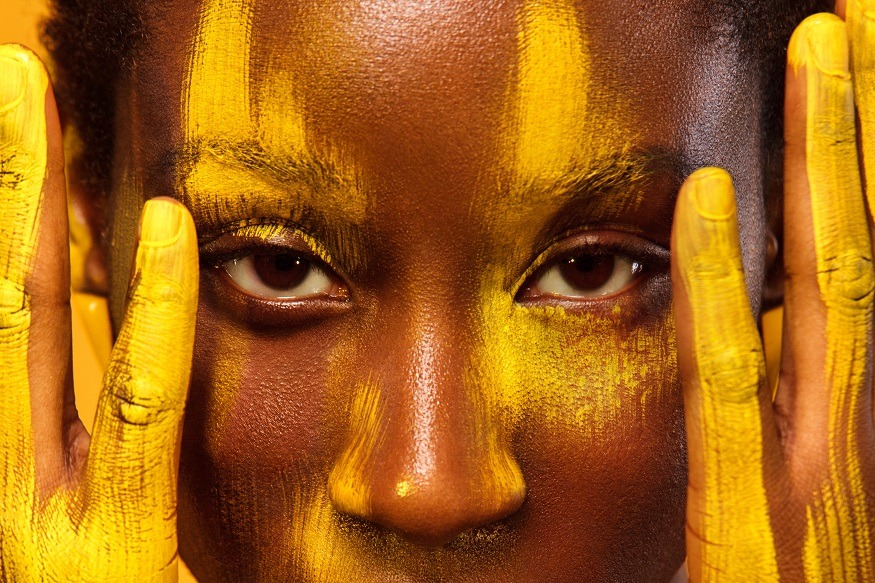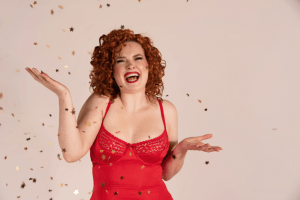
Fall in love with me; discovering your sexual identity

More and more often, you hear that you should be able to talk about your desires with your sex partner. That you should take the time to explore what your sexual identity looks like.
It’s a good thing that the importance of knowing what your sexual identity looks like is growing. But is also raises questions about how you should do this. How do you discover what your desires are? How do you know what it is you need? How do you find out what your fantasies might be? How do you know who you’re attracted to?
There isn’t a simple answer to any of these questions. Or maybe there is: take your time, keep an open mind, and know that you’re always allowed to say no.
Sexuality is still a topic that raises questions and invokes feelings of shame and uncertainty. It makes people giggle and whisper. And somehow we all think that other people know exactly what they are doing when it comes to sex. But I can tell you that most people haven’t got a clue what they are doing, or they are just doing what they have been doing for years now.
Learning about sexual identity
During adolescence, we’re supposed to learn about sexuality without anyone giving us the tools: sex education at schools is mediocre, the internet shows us all kinds of things we shouldn’t see until we’ve got an idea of what sex could be, and parents, caregivers, or teachers barely talk about it. By the end of our adolescence, we know we should use condoms so we can have safe sex. But having safe sex is so much more than just using a condom to prevent pregnancy or an STI. Having safe sex is like having sane sex: having the sanity to make decisions for yourself about your wishes, about your desires and needs, and about your boundaries. Having safe and sane sex means that you have a certain knowledge to make safe, sane sexual choices, because you know that you have a choice.
But instead of that knowledge being offered to us, we assume that we should just be ready to have sex when we enter the age of 17 or 18… And guess what, most of us aren’t quite ready by that age to deal with the full scope of what sexuality could look like. And that’s okay. And maybe that’s the most important thing I want to mention about this topic: it is okay not be fully equipped when you start to discover sexuality. And to be completely honest, some people never will be. And that’s just fine as well.
Being aware of your own sexual identity
Be aware of the idea, or maybe even the fact, that discovering sexuality will take a lifetime. And it might be clear to you what your sexual identity looks like during certain periods of your life, but there’ll always be a transition period when you enter a different phase of your life. Sexuality is fluid, meaning that it changes over time.
In different phases of your life, you can have different desires and needs. You can long for different things, maybe even up to the point that you don’t desire any sexual activity for a while.
To find out what your sexual desires and needs are, to figure out your expectations and your boundaries, it is important to keep an open mind. Try not to judge yourself. And then dive into all there is to know about sexuality: listen to podcasts and read articles, interviews, and books. Talk about it with your bedpartners, your friends, your therapist, or your loved one. Have an open conversation about the versatility of sexuality. Have sex! With yourself and others. Be curious, without feeling ashamed. Become at ease with yourself, embrace your own body, and invest in the concept of self-love.
There are courses you can take, as well as workshops. Just make sure to check the credentials of whomever is hosting the course or workshop. Listen to your gut if it tells you you don’t want to participate in something. But also try to challenge yourself. Try new things and explore the full scope of sexuality. And, and this might be the most important one, give yourself the time to develop a sense of what your sexuality looks like. This doesn’t happen overnight. It might take you years, especially if you can’t pay a decent amount of attention to it while also working, studying, being a mom, taking care of your household, being a friend, going to the gym, and basically just living your life.
Identifying your sexual self and knowing what it is you desire, what your sexual needs are, and what kind of beliefs and expectations you have takes a bit of work. And it can be an amazing journey. You just might want to take your time with it.
And to add to that: identifying your sexual self might mean that sex isn’t that important to you in the end. And that’s just fine.








Respond or ask a question
0 comments